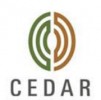
i
Arcmed Analytics And
Services
Filter interviews by
Arcmed Analytics And Services Interview Questions and Answers
Arcmed Analytics And Services Interview Experiences
3 interviews found
(1 Question)
- Q1. Tell me about yourself
(1 Question)
- Q1. ED professional guidelines
Interview Preparation Tips
I applied via Recruitment Consulltant and was interviewed in May 2022. There were 3 interview rounds.

(5 Questions)
- Q1. What is medicare and medicaid?
- Q2. What do you know about MCG guidelines?
- Q3. Milliman care guidelines used for prior authorization
- Q4. What is heart failure?
- Ans. Failure of heart to perform it's function
- Q5. What is Glasgow coma scale(GCS)
Work Experience related, where you worked previously and what department and what was your previous roles, CTC and expected CTC.
Interview Preparation Tips
I applied via Recruitment Consulltant and was interviewed in May 2022. There were 3 interview rounds.

(1 Question)
- Q1. Need to explain 2 to 3 body systems
(2 Questions)
- Q1. What is medical coding? What are the skills that a medical coder should possess?
- Q2. Must know some common phrases used in medical coding
Interview Preparation Tips
showcase your abilities
Most importantly be authentic and be mindful!
Top trending discussions






Interview questions from similar companies

Senior Associate Interview Questions & Answers
Illumine Knowledge Resourcesposted on 6 Mar 2022
I applied via Referral and was interviewed before Mar 2021. There were 2 interview rounds.

(1 Question)
- Q1. What is your aspiration
- Ans.
I aspire to lead impactful projects, mentor others, and contribute to innovative solutions in my field.
I aim to take on leadership roles, guiding teams to success, as I did in my last project where I led a cross-functional team to deliver a product ahead of schedule.
I want to mentor junior associates, sharing my knowledge and experience to help them grow, similar to how my mentor supported me early in my career.
I aspir...
Interview Preparation Tips
- Self reflection

I applied via LinkedIn and was interviewed before Nov 2020. There were 3 interview rounds.
Interview Questionnaire
2 Questions
- Q1. When was the last time you convinced your team to do something?
- Ans.
I successfully convinced my team to adopt a new project management tool that improved our workflow and communication.
Identified inefficiencies in our current project management process.
Researched and presented a new tool that addressed these issues.
Organized a demo session to showcase the tool's features and benefits.
Gathered feedback from team members and addressed their concerns.
Implemented the tool gradually, provid...
- Q2. What is your core value? When did you last display it visibly?
- Ans.
My core value is integrity. I displayed it visibly last week when I admitted my mistake to my team and took responsibility for it.
Integrity is important to me because it builds trust and credibility.
I always strive to be honest and transparent in my actions and decisions.
Last week, I made a mistake in a project and instead of trying to cover it up, I admitted it to my team and took responsibility for it.
I believe that ...
Interview Preparation Tips
I applied via Naukri.com and was interviewed in Dec 2022. There were 5 interview rounds.

(2 Questions)
- Q1. Resume review and questions according to correlation with gemba Concepts
- Q2. Technical knowledge & Certificate related verification on call by asking technical knowledge
(3 Questions)
- Q1. Lean Technique & uses in real life
- Ans.
Lean techniques focus on eliminating waste and improving efficiency in processes.
Lean techniques involve identifying and eliminating waste in processes to improve efficiency.
Uses in real life include implementing just-in-time inventory systems, reducing lead times, and streamlining production processes.
Lean techniques can also be applied in service industries to improve customer satisfaction and reduce costs.
Examples i...
- Q2. Six Sigma & black lean uses with reason
- Ans.
Six Sigma and Lean Black Belt methodologies are used in consulting to improve processes and reduce waste.
Six Sigma focuses on reducing defects and variation in processes
Lean Black Belt focuses on eliminating waste and improving efficiency
Combining both methodologies can lead to significant improvements in quality and productivity
Examples of using Six Sigma and Lean Black Belt in consulting include streamlining supply c...
- Q3. Technical verification from core field
(2 Questions)
- Q1. Project management & use of tools techniques
- Ans.
Project management involves planning, organizing, and executing projects using tools and techniques to achieve specific goals.
Project management tools like Gantt charts, Kanban boards, and project management software help in planning and tracking progress.
Techniques such as Agile, Waterfall, and Scrum methodologies are used to manage projects efficiently.
Effective communication, risk management, and stakeholder engagem...
- Q2. Implementation based on experience & result came from it
(2 Questions)
- Q1. Salary negotiation based on interview
- Q2. Document & verification of availability
Interview Preparation Tips
Ready for cross questions of each answer
Don't lie on any skill they are experts in their domain

(2 Questions)
- Q1. What is lean manufacturing ?
- Ans.
Lean manufacturing is a systematic approach to identifying and eliminating waste in the production process.
Focuses on continuous improvement and waste reduction
Involves all employees in the process
Uses tools such as value stream mapping and 5S
Examples include Toyota Production System and Kaizen
- Q2. What is OEE and productivity?
- Ans.
OEE stands for Overall Equipment Effectiveness and productivity refers to the efficiency of a process or system.
OEE is a metric used to measure the performance of manufacturing equipment.
It takes into account three factors: availability, performance, and quality.
Productivity is a measure of how efficiently resources are used to produce goods or services.
It can be calculated by dividing output by input.
Improving OEE and...
(1 Question)
- Q1. What is your last CTC?
Interview Preparation Tips
Especially lean six sigma.

I appeared for an interview in May 2025, where I was asked the following questions.
- Q1. What are your strengths
- Ans.
I possess strong analytical skills, effective communication, and adaptability, which help me excel in collaborative environments.
Analytical Skills: I excel at breaking down complex problems, as demonstrated in my project where I analyzed data trends to improve outcomes.
Effective Communication: I can convey ideas clearly, which was evident when I presented a research project to my peers and received positive feedback.
Ad...
- Q2. On what projects have you worked previously

I appeared for an interview in Jan 2025.
(5 Questions)
- Q1. Tell me about urself and the projects you worked on?
- Ans.
I am a business analyst with experience in data analysis, process improvement, and project management.
Led a team in implementing a new CRM system to improve customer relationship management
Conducted data analysis to identify cost-saving opportunities in supply chain operations
Collaborated with stakeholders to develop and implement a new pricing strategy for a product line
- Q2. Powerbi questions
- Q3. What are the key KPI's ?
- Ans.
Key Performance Indicators (KPIs) are measurable values that demonstrate how effectively a company is achieving key business objectives.
KPIs should be specific, measurable, achievable, relevant, and time-bound (SMART)
Examples of KPIs include revenue growth rate, customer retention rate, conversion rate, and average order value
KPIs help businesses track progress towards their goals and make informed decisions based on d...
- Q4. What do you think, what make the company effective?
- Ans.
An effective company is one that has strong leadership, clear goals, efficient processes, and a positive company culture.
Strong leadership that sets clear direction and motivates employees
Clear goals and objectives that are communicated to all employees
Efficient processes and workflows that minimize waste and maximize productivity
Positive company culture that fosters collaboration, innovation, and employee satisfaction
- Q5. If you have a company or you are working as a BA for a company what would do to make the company ahead of competition?
- Ans.
To make a company ahead of competition, I would focus on market research, innovation, customer satisfaction, and continuous improvement.
Conduct thorough market research to identify trends and opportunities
Encourage innovation within the company to stay ahead of competitors
Prioritize customer satisfaction to build loyalty and attract new customers
Implement continuous improvement processes to enhance efficiency and quali...
Interview Preparation Tips

Managing Director & CEO Interview Questions & Answers
Liberation Coachesposted on 15 Aug 2022
I applied via Referral and was interviewed before Aug 2021. There was 1 interview round.
(1 Question)
- Q1. Tell me about some of your recent successes and failures.
- Ans.
I have had several recent successes and failures in my role as Managing Director & CEO.
Successfully led a company-wide restructuring initiative, resulting in increased efficiency and cost savings.
Implemented a new marketing strategy that led to a significant increase in sales and market share.
Failed to secure a major partnership deal, but learned valuable lessons about negotiation and relationship building.
Successfully...
Interview Preparation Tips
Arcmed Analytics And Services Interview FAQs
Tell us how to improve this page.
Interview Questions for Popular Designations
- Team Lead Interview Questions
- Software Engineer Interview Questions
- Software Developer Interview Questions
- Intern Interview Questions
- Sales Executive Interview Questions
- Associate Software Engineer Interview Questions
- Graduate Engineer Trainee (Get) Interview Questions
- Java Developer Interview Questions
- Show more
Overall Interview Experience Rating
based on 1 interview experience
Interview Questions from Similar Companies
Arcmed Analytics And Services Reviews and Ratings
based on 34 reviews
Rating in categories
|
Senior Executive
5
salaries
| ₹3.1 L/yr - ₹6.8 L/yr |
|
Medical Coder
5
salaries
| ₹1.6 L/yr - ₹3 L/yr |
|
Executive
4
salaries
| ₹3.1 L/yr - ₹6 L/yr |
|
Senior AR Caller
4
salaries
| ₹4.8 L/yr - ₹5 L/yr |
|
Coding Executive
4
salaries
| ₹3 L/yr - ₹4.2 L/yr |

VISION
Gemba Concepts

Anb Solutions

TechSci Research
- Home >
- Interviews >
- Arcmed Analytics And Services Interview Questions











